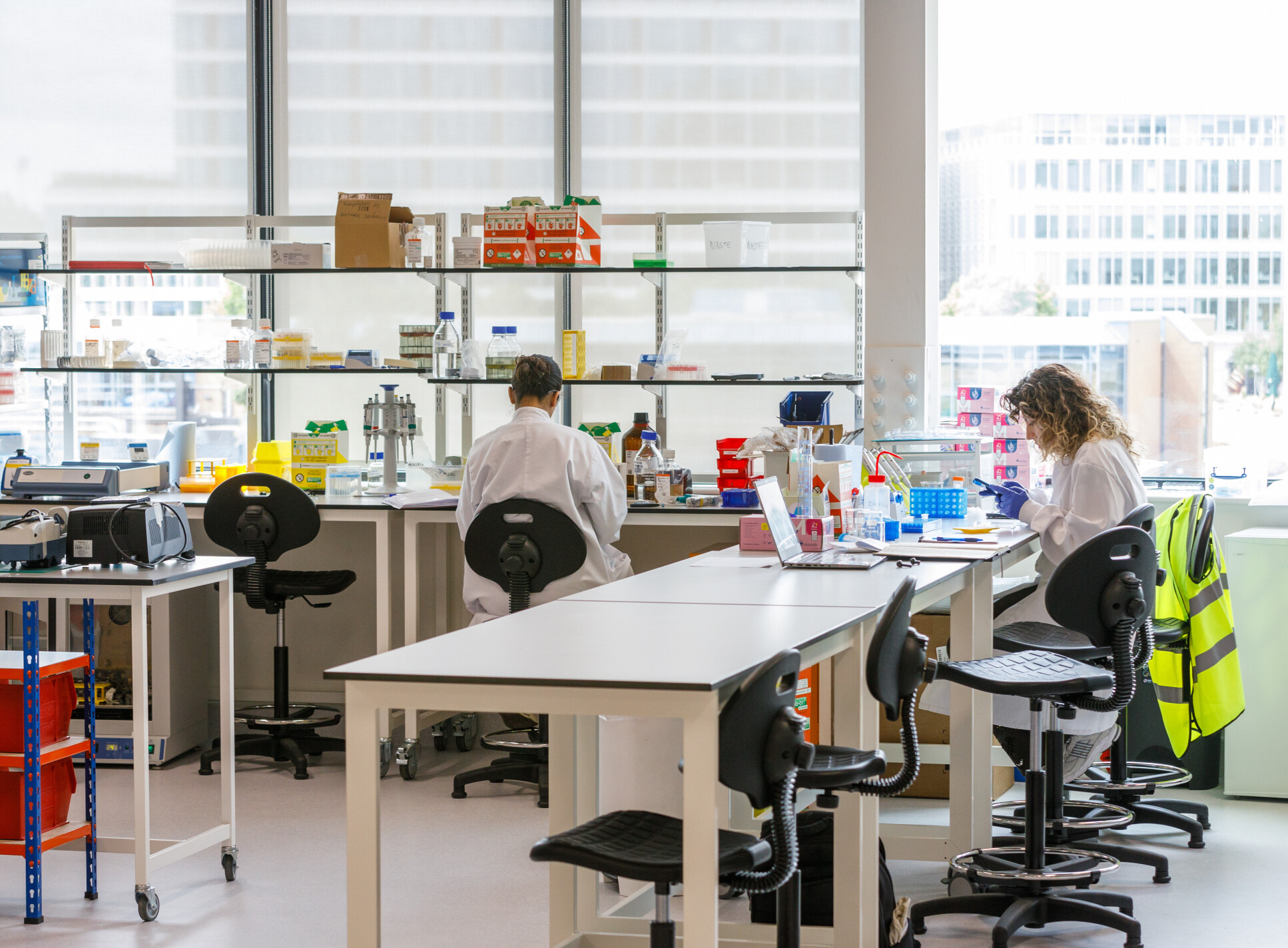Imperial University Embraces Independent Review of Spin-Out Companies
Imperial College London welcomes the UK Government’s Independent review of university spin-out companies, published on 21 November.
Imperial College London, along with its partners in TenU, the international collaboration of ten technology transfer offices from the world’s leading universities, welcomes the UK Government’s Independent review of university spin-out companies, published today.
The review, commissioned by the Chancellor of the Exchequer and conducted by Professor Irene Tracy (University of Oxford) and Dr Andrew Williamson (Cambridge Innovation Capital), highlights the required components of a stellar spinout environment and makes recommendations to accelerate the UK towards building a world-leading innovation ecosystem that creates more and better spinout successes.
“We welcome its findings and hope its recommendations will galvanise stakeholders across the university innovation ecosystem to help UK spinouts generate even more impact.”Dr Simon HepworthDirector of Imperial Enterprise
The review notes the University Spinout Investment Terms Guide (USIT), a set of recommendations to improve the speed and efficiency of university spinout formation launched by TenU in April 2023. USIT was developed through collaboration with prominent venture capital investors, global law firms and key professional associations and demonstrates the shared commitment across the sector to work together to build businesses that can change the world. Imperial continues to participate in this work and joins TenU partners in their commitment to develop similar recommendations and templates for software and other technologies.
Spinout companies – startups based on intellectual property (IP) generated through university research – make a valuable social and economic contribution to the UK, often developing new scientific discoveries into products and services that can revolutionise industry sectors or transform the lives of patients. A thriving spinout sector is recognised in the report as key to the UK’s ambition to be a science and technology superpower. The review makes recommendations to stakeholders across the university innovation sector which, if adopted, will substantially enhance the rate and quality of spinout formation throughout the UK.

Simon Hepworth, Director, Imperial Enterprise, said: “This Review recognises the importance of universities investing in sustained, curated support and infrastructure for innovation. We welcome its findings and hope its recommendations will galvanise stakeholders across the university innovation ecosystem to help UK spinouts generate even more impact.”
Imperial places substantial emphasis on creating the necessary environment, infrastructure and processes for startups and spinouts based on or inspired by university research to start well and thrive.
The recent refresh of Founders Choice, Imperial’s approach to spinout creation, offers spinout founders favourable deal terms including a very low institutional equity stake, simplified policies and a dedicated Spinout Project Manager to facilitate the process end-to-end. Imperial was the first UK university to pioneer this approach, building on a pilot scheme offering comparable terms launched in 2017.
Spinout successes

New Imperial spinouts that have closed funding rounds in the past months include Alveogene, which is developing gene therapies for rare lung diseases, and Sparta Biodiscovery, which is commercialising a platform to optimise the design of nanoparticles for use in advanced medicines. These companies exemplify the potential of a high quality spinout ecosystem to advance novel scientific discoveries towards real-world impact.
Spinout companies that can deliver on their potential could transform society. Fuel cell disruptor Bramble Energy, which raised £35 million from investors last year, has delivered rapid growth over the past 12 months, leading to it being named in Deloitte’s Fast 50 UK Technology, a list that acknowledges the fastest growing UK technology companies. Bramble was founded in 2015 based on research undertaken at Imperial and UCL and is focused on helping the world achieve Net Zero by making clean energy technology accessible and scalable.
Infrastructure and support
The review recommends the creation of supportive infrastructure such as laboratory and office space co-located with academic research and industry partners, and highlights the importance of access to experienced mentors and advisors.

Imperial has built substantial capacity in this area. Its White City and Hammersmith Campus provides an innovation platform, with offices, lab-space, support services, academic research and teaching and world-class facilities, co-locating researchers, entrepreneurs with established companies and major global corporations.
This is backed by a whole-university innovation ecosystem that incorporates in-house technology transfer, entrepreneurial training and support, mentorship, accelerator programmes, proof-of-concept support and much more. Any member of the Imperial community – from first-year undergraduate to Professor Emeritus – can take advantage of this extensive and carefully-curated provision to develop their ideas into businesses that will change the world.

Imperial supports the recommendations made in the report to raise levels of available proof-of-concept funding to develop and build confidence in very early-stage technologies, and to make available high quality entrepreneurship training to all PhD students.
Initiatives such as Imperial’s DT-Prime and IAA have proved the value of proof-of-concept funding in enabling technology priming work to support the future creation of investable spinouts. Imperial has led the way in providing and collaborating with entrepreneurial training for PhD students, and now sees a regular pipeline of company founders emerging from PhD or Postdoctoral programmes. One recent example is MintNeuro, which builds on over a decade of research in ultra-low power implantable bioelectronics. Its CEO, Dr Dorian Haci, completed a PhD at Imperial, became a Research Associate, and founded the company alongside Professor Timothy Constandinou.
Alongside our partners in TenU and across the UK, Imperial looks forward to continuing to develop, share and implement effective practices that will accelerate the spinout process and create more companies with high potential to make significant positive contributions to society.

